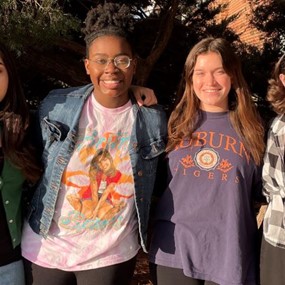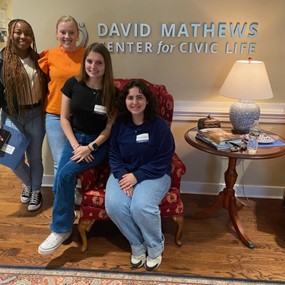Auburn University, The Election Center partnership professionalizes elections work
The United States’ election system is a complex network of laws, ethics and practices that requires specific knowledge and skills to navigate. Thanks to the work of the Auburn University Department of Political Science, the people who work the polls receive a professionalized education.
Auburn partnered with the National Association of Election Officials, also known as The Election Center, more than 30 years ago. Throughout that time, election officials across the nation have been trained in election administration best practices.
Professor and The Election Center Partnership Director Kathleen Hale said before the mid-90s, election administrators didn’t have the professional development or standardized training required of professional public servants.
“Our work to professionalize the field has made a significant difference in the confidence that public servants have that their work is being done correctly, that it’s being done fairly, that it’s being done ethically,” Hale said. “Those are all parts of the feeling and the identity that you get when you build a profession, and you call yourself an election administration professional.”
Together, Auburn and The Election Center offer the Certified Elections/Registration Administrator, or CERA, program, a national certification program that trains election administrators in law, ethics, policy and history. Auburn’s expert faculty travel the nation and deliver training online to equip election administrators with the knowledge they need to manage free and fair elections. Since its creation, state associations have created their own training programs modeled after Auburn’s curriculum.
Auburn also co-hosts conferences, workshops and a bi-annual symposium for election officials to connect with political science faculty about the current challenges and opportunities in election administration. Hale said these meetings between the academic and practice communities lead to innovation.
“The work our faculty does contributes to more efficient and more effective election operations,” Hale said. “The best ideas are in the space that we’re working in. Many of the innovations that you see today in elections begin in these conversations: vote centers, drop boxes, no-excuse absentee balloting, using poll pads, using commercial off-the-shelf technology to check in voters, having methods of keeping your voter rolls accurate and clean. All of those ideas and best practices incubate in this process.”
Hale and Curtis O. Liles Endowed Professor Mitchell Brown are leading academic voices in election administration. The Journal of Election Administration, Research & Practice, created as part of the partnership between Auburn and The Election Center, publishes peer-reviewed articles addressing concerns in election research, practice and advocacy communities.
Brown said like the symposium, the journal and their first-of-its-kind election administration books apply research to practice.
“We noticed that there was this real disconnect between the people who were writing about elections and how they’re run and the experience of practitioners,” Brown said. “It’s where the journal and symposium came from, trying to build a bridge between the practice community and the research community. There are now other academics around the country trying to do the exact same thing. But I think in terms of the real tie to the practice community, the Auburn program was there first. And I like to think we’re their best.”
At Auburn, the depth of expert faculty and connection to the groundwork of election administration led to a graduate certificate in election administration. The program is designed to equip students with the knowledge, skills and ability to be efficient and ethical elections administrators.
Mitchell said between the certificate program and the work Auburn does in the field, the next generation of election administration leaders emerge ready to secure every vote and share what they’ve learned.
“The 30-plus year partnership between The Election Center and Auburn University has really shaped the field and developed a lot of leadership in the field,” Brown said. “One of the things that we also see over time is people who go through these classes create networks and join networks where they then become the policy leaders and they then become the national voice of some of this.”
Tags: Political Science Community, Outreach and Engagement Research






